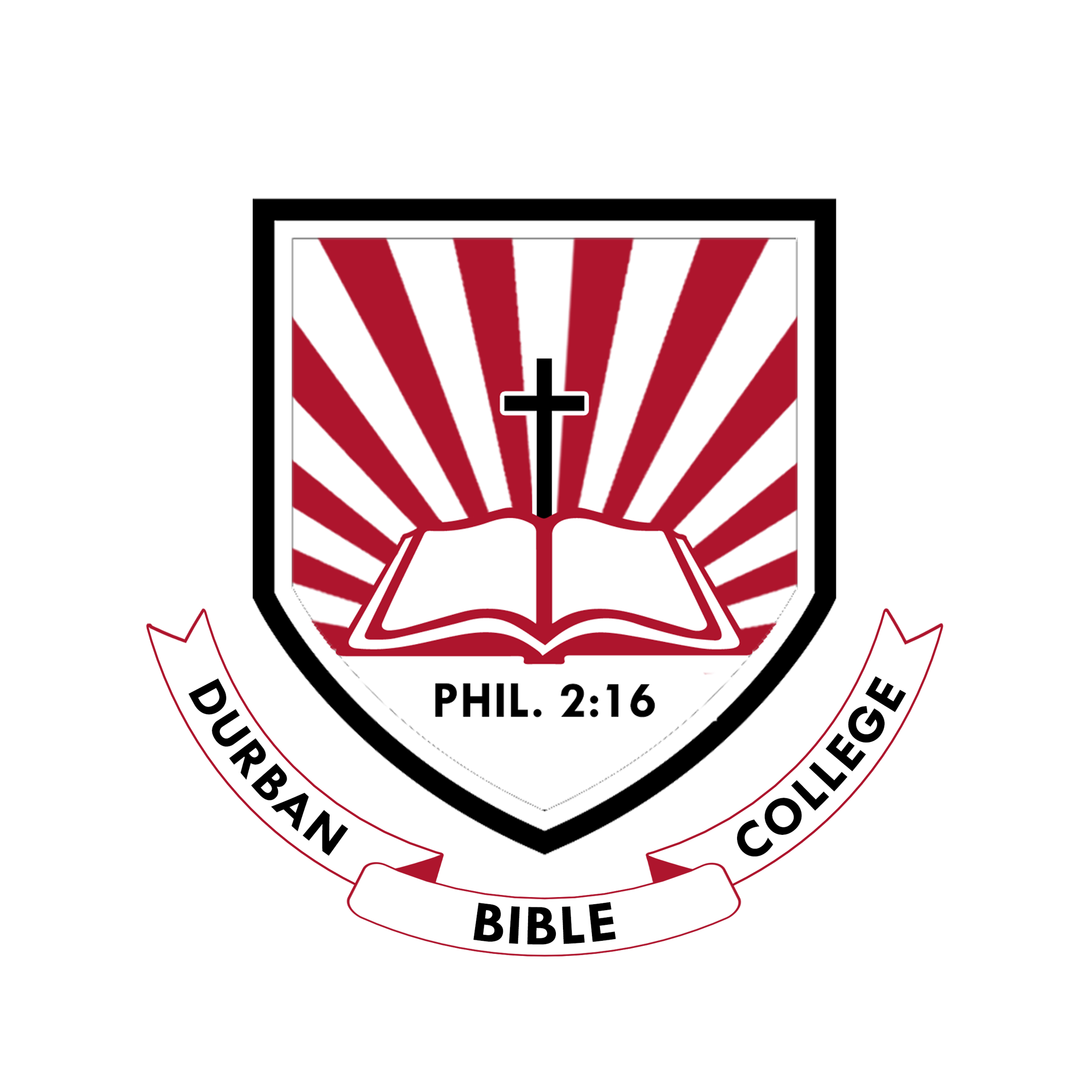Our Programmes
August 3, 2023 2024-04-23 8:17Our Programmes
FULL-TIME OR PART-TIME DAY SCHOOL PROGRAM:
Durban Bible College offers several courses of study.

NQF 5 Qualification
The purpose of this qualification is to prepare a learner to operate as a Christian Religious Professional.
Qualification Title
Occupational Certificate
Christian Religious Professional
SAQA ID
101571
NQF Level
5
Modules
13
Credits
237
PURPOSE
A Christian Religious Professional directs and conducts the ministry functions in a faith community to facilitate spiritual formation; nurture fellowship and mutual care within the faith community; help members to develop a Christian lifestyle; provide strategic leadership that leads to obedience to a vocation as well as well-being and sustainability of the faith community, and develops a missional practice that shares the good news of Jesus Christ and serves the holistic well-being of the entire community.
A qualified learner will be able to:
• Lead the faith community in spiritual formation that nurtures their relationship with God.
• Develop and nurture fellowship and mutual care within the faith community.
• Facilitate the holistic well-being of people within the faith community by developing proactive and reactive (coping) life skills and a Christian value system.
• Provide visional leadership that leads to obedience in their vocation, as well as the well-being and sustainability of the faith community.
• Develop a missional practice that shares the good news of Jesus Christ and serves the holistic well-being of the entire community.
RATIONALE
Religious ministers serving churches and Christian groups in Southern Africa come from two distinct backgrounds. The first is deemed more formal (also referred to as the so-called historic churches) while the second is seen as less formal and originated from more recent development processes. This second group includes what is referred to as Pentecostal and Charismatic churches and the large group of African Initiated Churches (AICs). Recent estimates indicate that there are around 186,000 pastors (ministers of religion) in this less formal group, compared to the number of around 9,000 for the historic churches.
There are currently no formally recognized qualifications for religious practitioners within the Christian tradition, apart from the Higher Education qualifications registered through the different tertiary educational institutions. With the introduction of the new occupational certificate, society will benefit from the assurance that large numbers of spiritual leaders who did not have a proper training opportunity in the past, will now have training available to develop a relevant set of competencies. The Occupational Certificate will be accessible to existing spiritual leaders who did not have the benefit of proper training in the past, and who do not have access to tertiary training at universities or private training institutions. It will also be accessible to newcomers to the profession who want to be trained as pastors, but who do not have access to tertiary training or who prefer to go the occupational training route.


